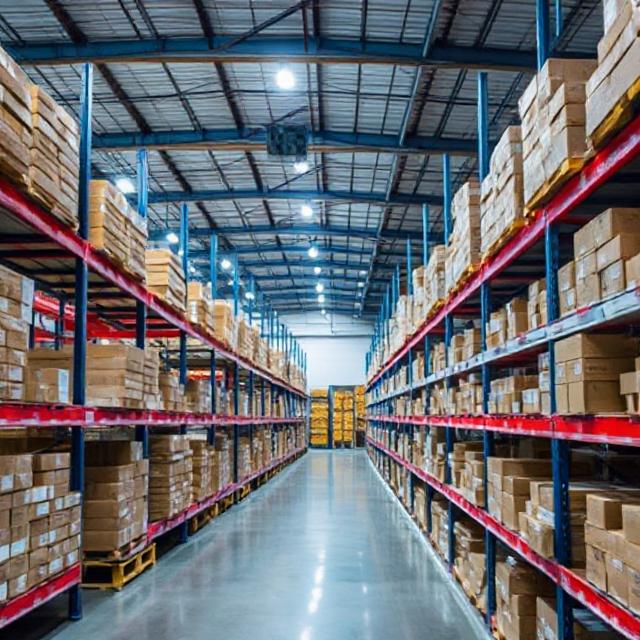For small retailers in the UK, avoid stock shortages is more than a matter of convenience—it’s a cornerstone of business success. Customers expect you to have their favourite products on the shelves every time they walk into your shop. When those products aren’t available, you risk losing sales, damaging your reputation, and sending customers straight to competitors.
One of the most effective ways to prevent this is by working with suppliers you can depend on. Supplier reliability—the ability of a supplier to deliver the right products, in the right quantity, at the right time—is essential for maintaining a steady flow of goods. In this guide, we’ll explore why supplier reliability matters, common causes of stock shortages, and strategies to ensure your shelves are never empty.
What Are Stock Shortages and Why Do They Happen?
A stock shortage, often referred to as an “out of stock” situation, happens when you don’t have enough inventory to meet customer demand. While occasional shortages are inevitable, frequent stockouts can signal a deeper supply chain problem.
Common causes of stock shortages include:
-
Unreliable supplier deliveries – Delays or incomplete shipments disrupt your ability to restock on time.
-
Poor demand forecasting – Underestimating seasonal demand spikes leaves you short-handed.
-
Inventory mismanagement – Inaccurate stock counts result in reordering too late.
-
Global supply chain disruptions – Events like shipping delays, strikes, or raw material shortages.
While some factors are outside your control, building strong relationships with reliable suppliers helps mitigate many of these risks.
Why Supplier Reliability is the Key to Avoiding Stock Shortages
1. Consistent Product Availability
When your supplier delivers on time and in full, you can plan your sales and promotions with confidence. Consistency allows you to meet customer expectations and build loyalty.
2. Support During High-Demand Periods
Reliable suppliers understand your seasonal needs. Whether it’s Easter chocolate, summer beverages, or Christmas treats, they can help you plan stock in advance so you don’t miss sales opportunities.
3. Reduced Operational Stress
Unreliable suppliers create last-minute scrambles, forcing you to source products from alternative (and often more expensive) sources. A dependable partner allows you to focus on customer service and growth rather than firefighting supply problems.
4. Improved Profit Margins
Reliable suppliers often offer better bulk discounts, reduced emergency shipping costs, and predictable delivery schedules—all of which help improve profitability.
Practical Steps to Avoid Stock Shortages
1. Build Relationships with Trusted Suppliers
Suppliers who value your business will prioritise your orders and keep you informed of potential delays. Regular communication fosters trust and helps both parties plan better.
Example: At Bulk Buy Wholesale, we work closely with retailers to forecast demand for high-selling items, ensuring stock arrives before peak periods.
2. Keep Accurate Inventory Records
Inventory management is at the heart of preventing shortages. Use inventory tracking software or even a well-maintained spreadsheet to monitor:
-
Current stock levels
-
Sales velocity (how quickly products sell)
-
Reorder points (minimum quantity before restocking)
Accurate data allows you to reorder before you run out, reducing dependency on last-minute supplier arrangements.
3. Order in Advance for Peak Seasons
Plan for holidays, festivals, and local events months in advance. Suppliers appreciate early orders because it allows them to secure enough stock from manufacturers.
Tip: Create a seasonal inventory calendar to guide your purchasing decisions.
4. Work with Multiple Suppliers
While loyalty to a primary supplier is valuable, having a backup supplier ensures you’re not left stranded if your main partner faces issues.
5. Use Online Ordering Systems
Online wholesale ordering offers real-time stock updates, making it easier to choose available items and avoid delays. Many reliable suppliers provide customer dashboards with order histories and delivery tracking.
6. Monitor Supplier Performance
Track delivery accuracy, timeliness, and communication. If you notice recurring issues, address them early before they lead to significant stockouts.
The Role of Supplier Reliability in Profitability
Fewer Emergency Purchases
Buying last-minute from alternative sources is almost always more expensive. Reliable suppliers eliminate this cost.
Better Bulk Discounts
Consistent, predictable orders can qualify you for special pricing or promotions.
Stable Cash Flow
When you can plan inventory confidently, you can schedule purchases in line with your revenue, avoiding cash flow strain.
Signs of a Reliable Wholesale Supplier
When evaluating potential suppliers, look for:
-
Positive Customer Feedback – Check online reviews and testimonials.
-
Transparent Communication – Clear pricing, stock availability, and delivery timelines.
-
Wide Product Range – Reduces the need to coordinate multiple suppliers.
-
Strong Logistics Network – Timely deliveries, even in high-demand seasons.
Example: Bulk Buy Wholesale provides real-time inventory updates, on-time deliveries, and a wide range of wholesale products, helping UK small retailers keep shelves stocked year-round.
What to Do If Your Supplier Fails to Deliver
Even the most reliable suppliers can face unforeseen disruptions. If that happens:
-
Contact them immediately – Clarify the issue and expected resolution.
-
Use your backup supplier – This minimises downtime in replenishing stock.
-
Communicate with customers – Offer alternatives or inform them of expected restock dates.
-
Review contracts – See if service guarantees or penalties apply.
Case Study: Supplier Reliability in Action
A small convenience shop in Birmingham frequently ran out of popular crisps and soft drinks due to delays from their local wholesaler. After switching to a supplier with a track record for reliability and using an online ordering system, they:
-
Reduced stockouts by 85%
-
Increased customer satisfaction scores
-
Improved profits by 14% due to fewer emergency purchases
This case highlights how supplier reliability can directly transform retail operations.

